The seating plan is a crucial element meticulously crafted by wedding planners in preparation for the big day.
It plays a vital role in shaping the overall experience for both guests and hosts at the event. The primary objective is to bring together mutual friends and acquaintances of the couple, ensuring that guests with prior relationships or common interests are grouped together. This thoughtful arrangement promotes a sense of camaraderie and fosters a warm and enjoyable atmosphere, enhancing the overall celebration for everyone involved.
This chart is a tool that provides the event planner with a clear understanding of how guests will be seated in terms of separate rows and sections that divide and represent the different guests on it, which results in a comfortable arrangement.
Hence, it is one of the vital things to consider to make the wedding reception a success. This guide provides planners and hosts with tips to create the best seating for the event.
Free Charts
Following are free downloadable charts for you:
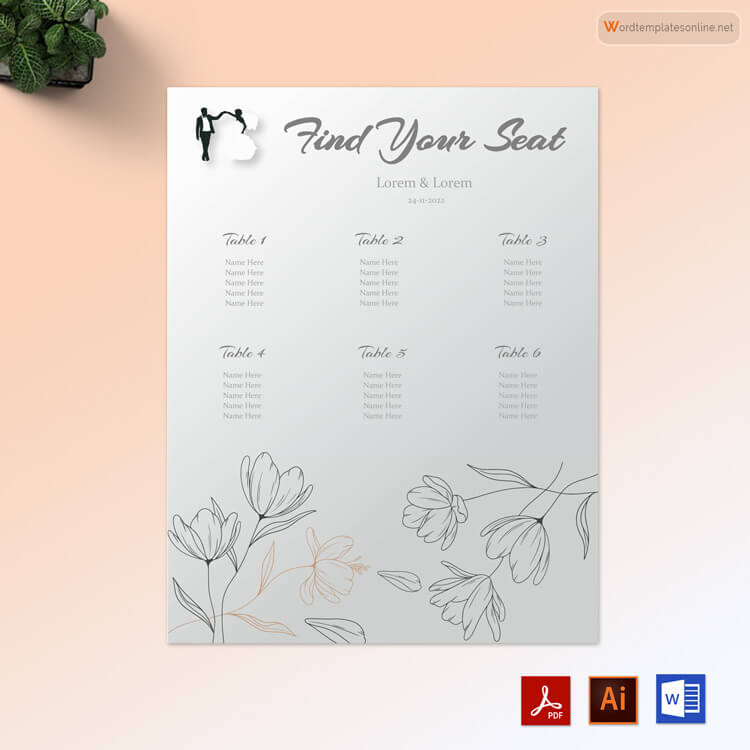
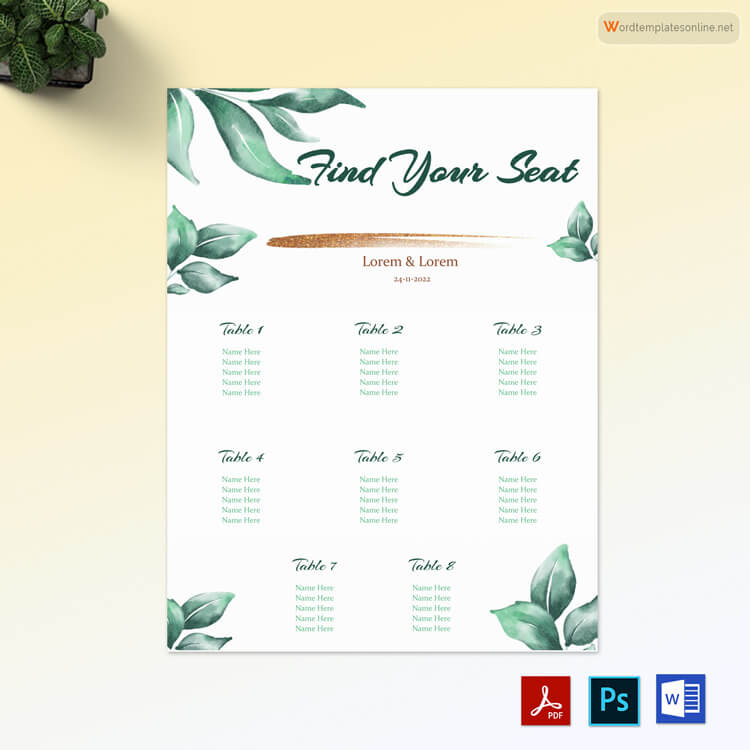

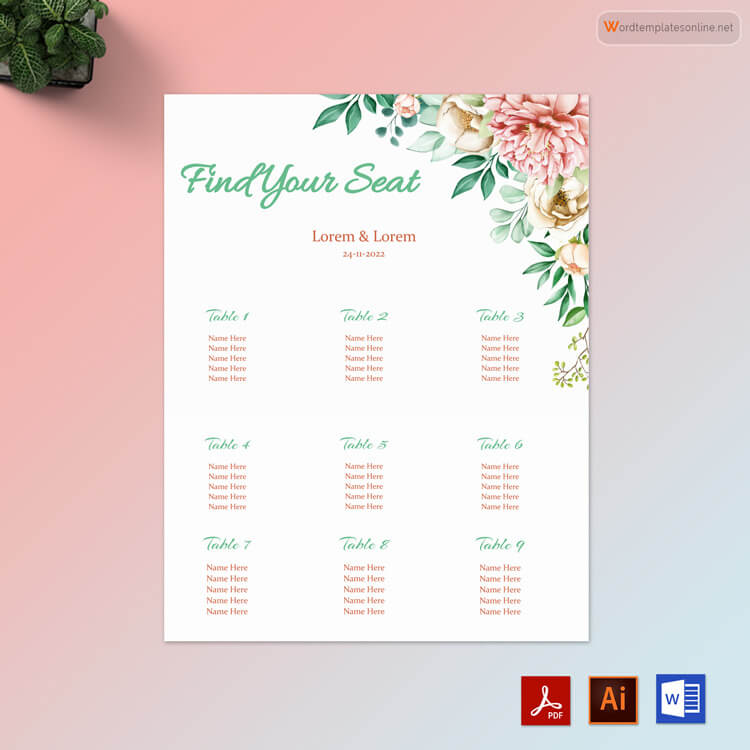

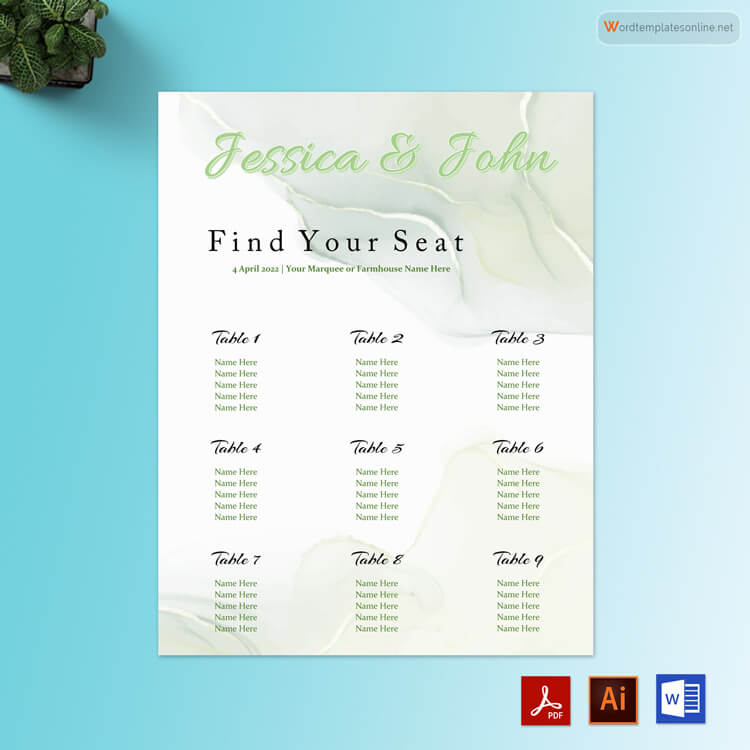
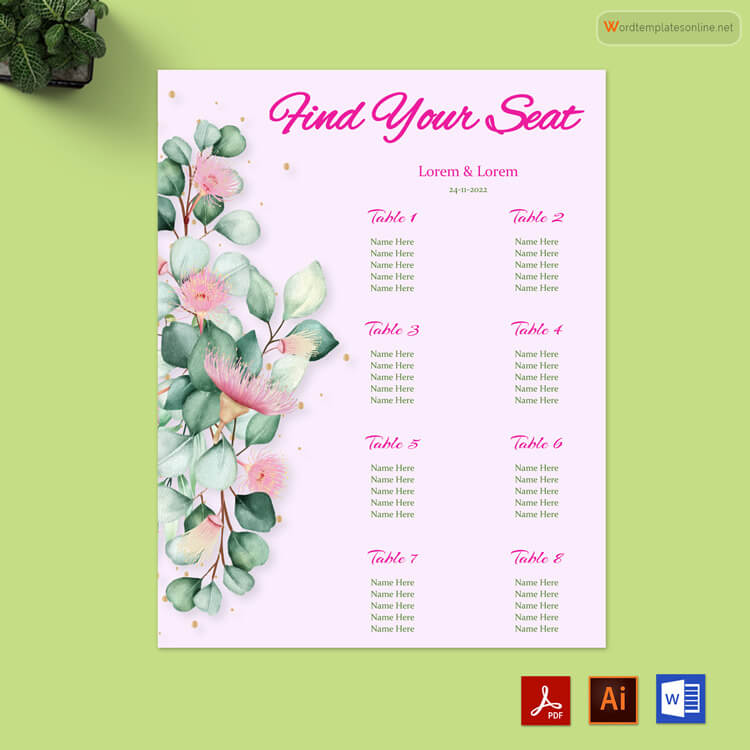

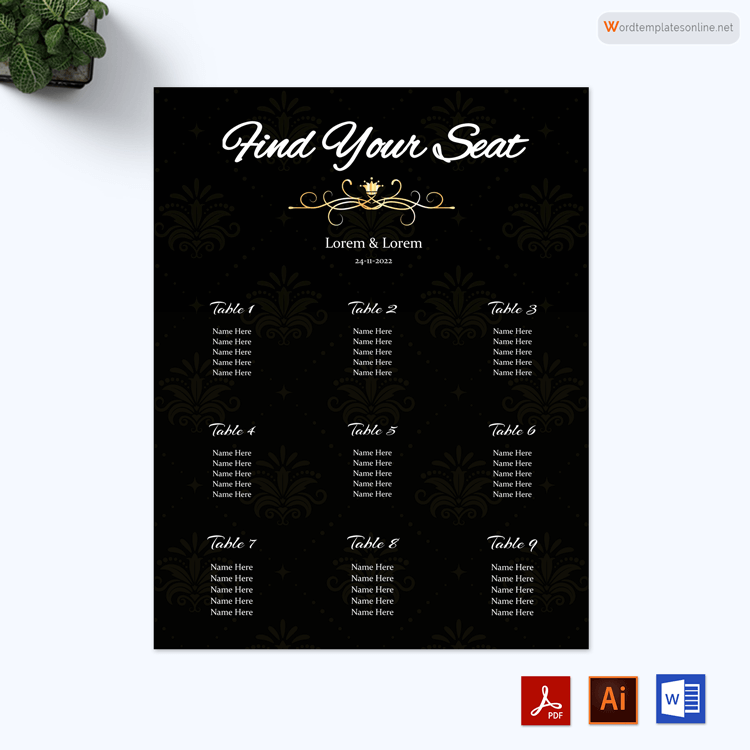
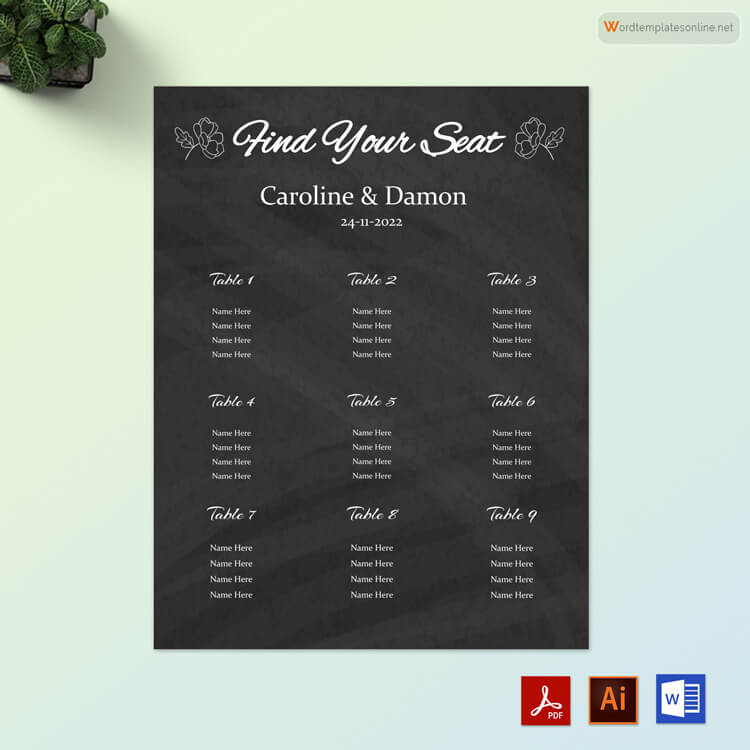
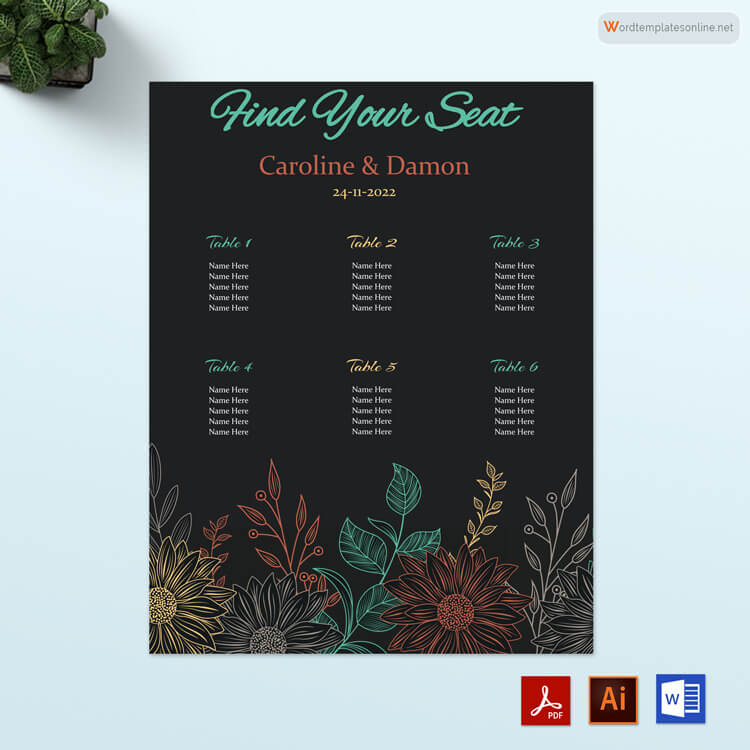
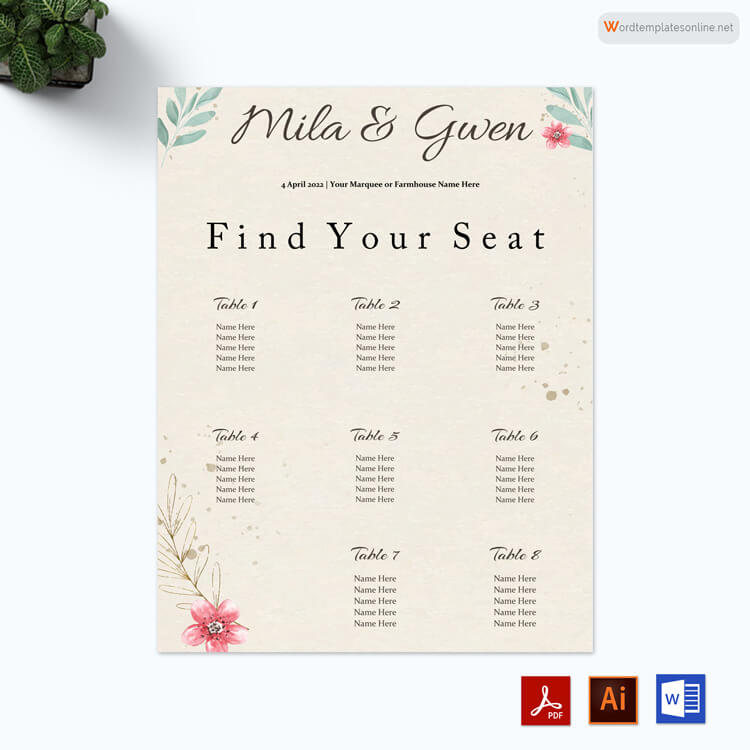
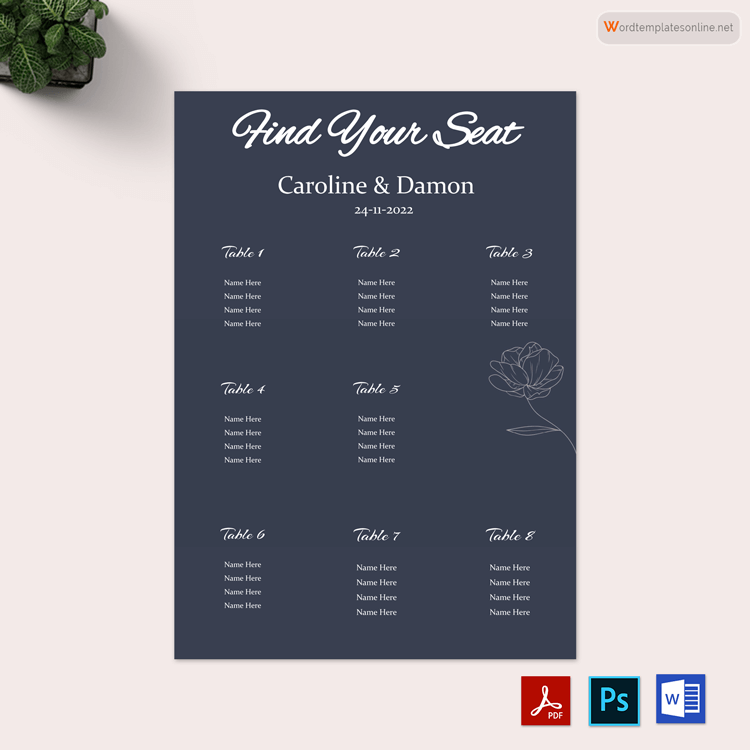
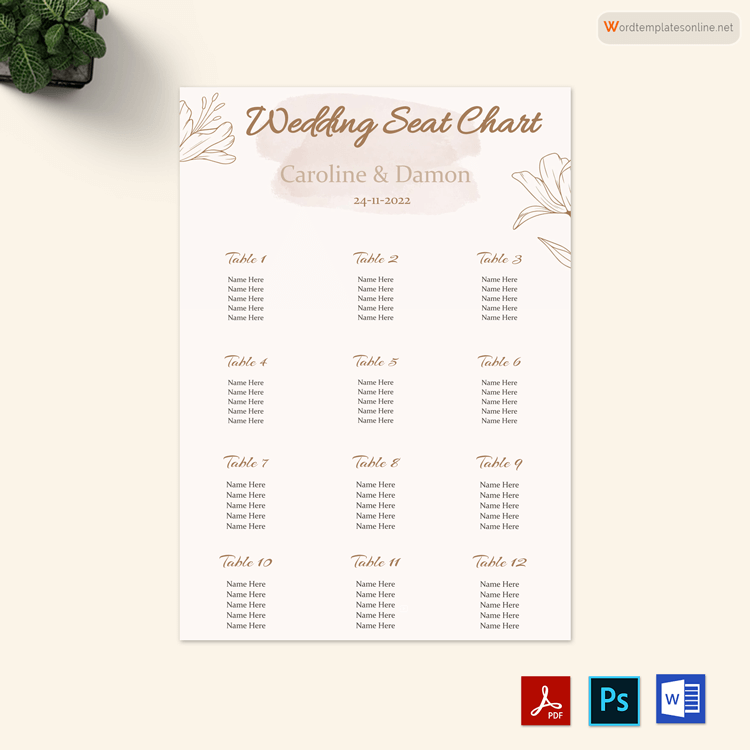
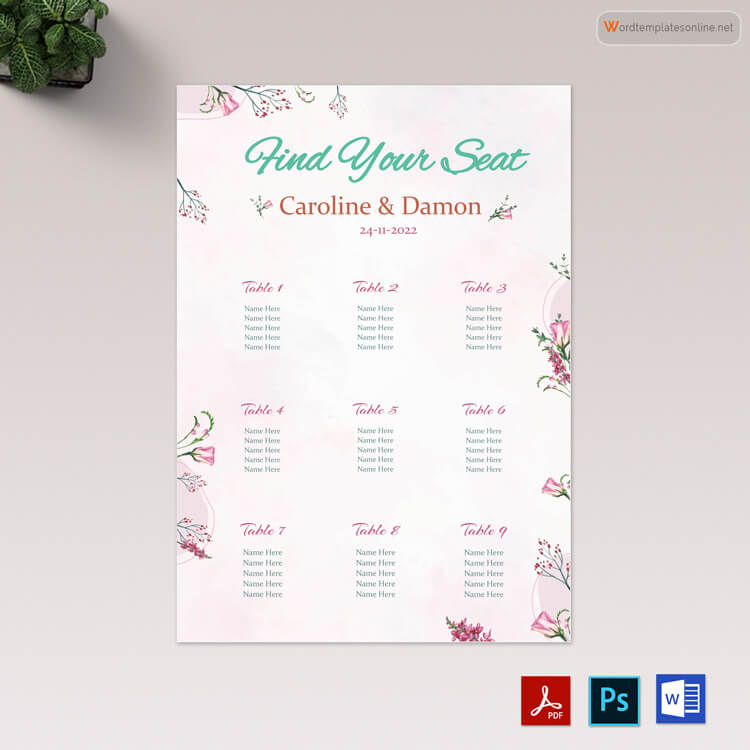
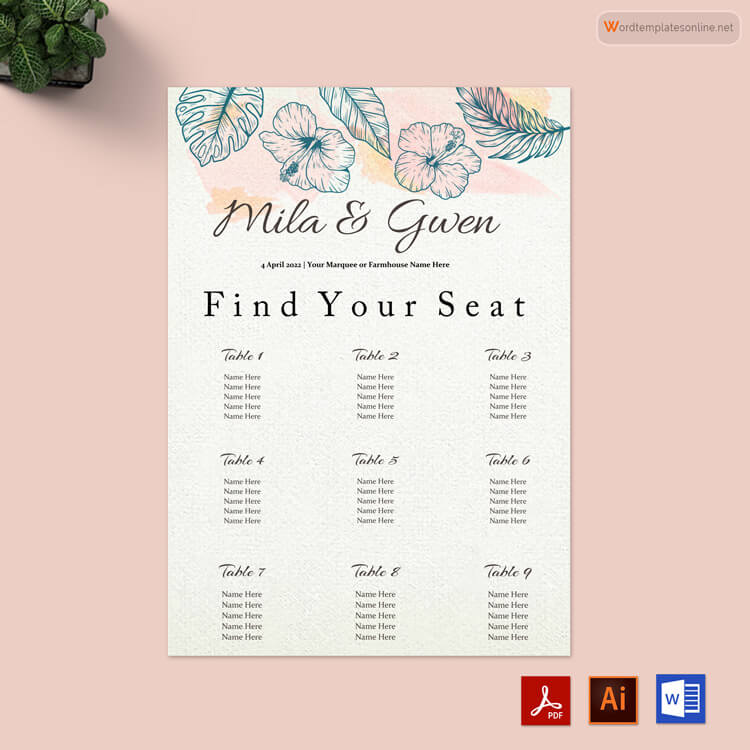
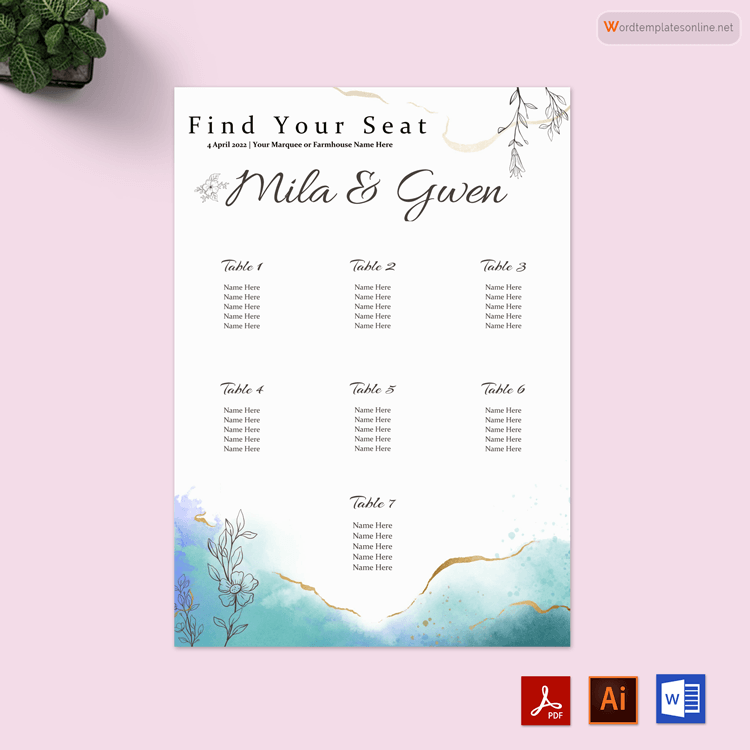
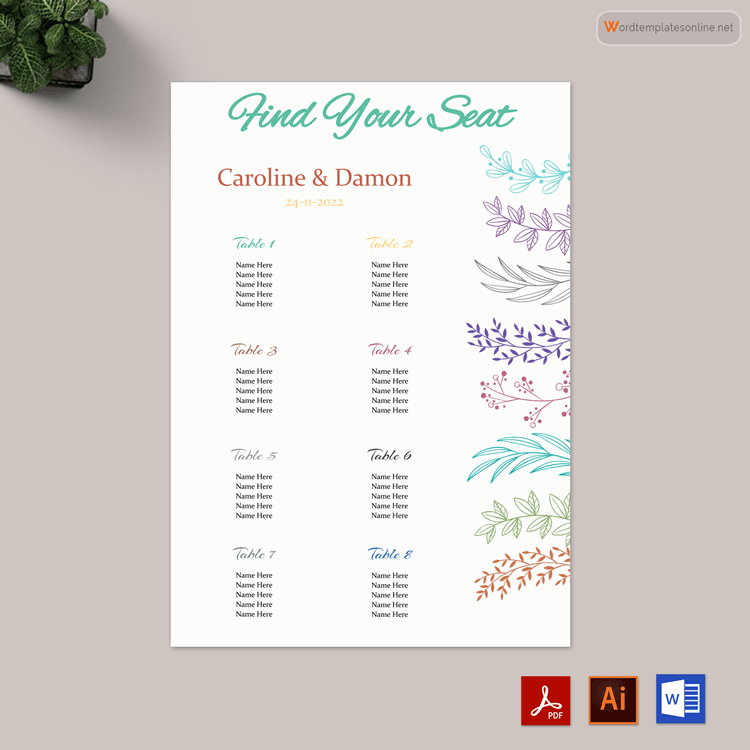
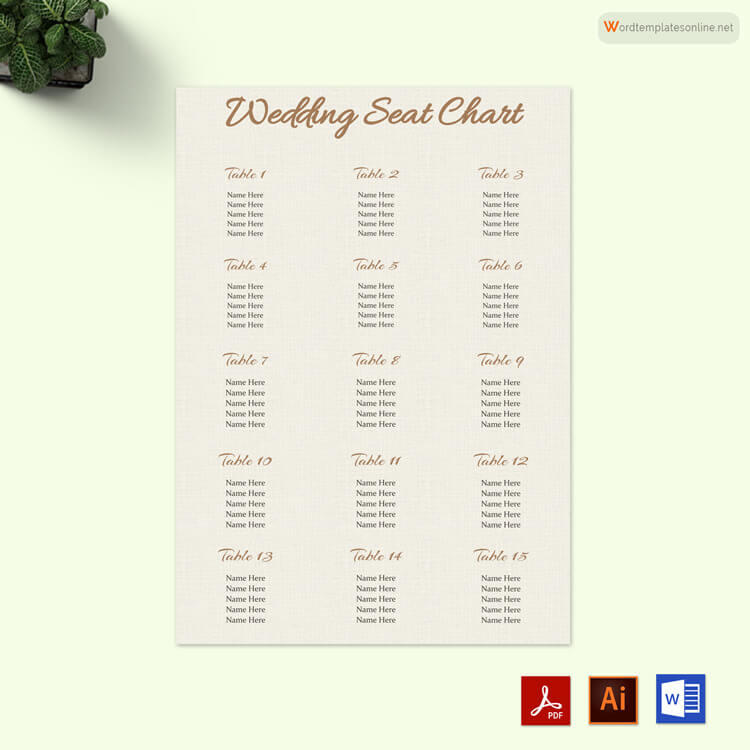
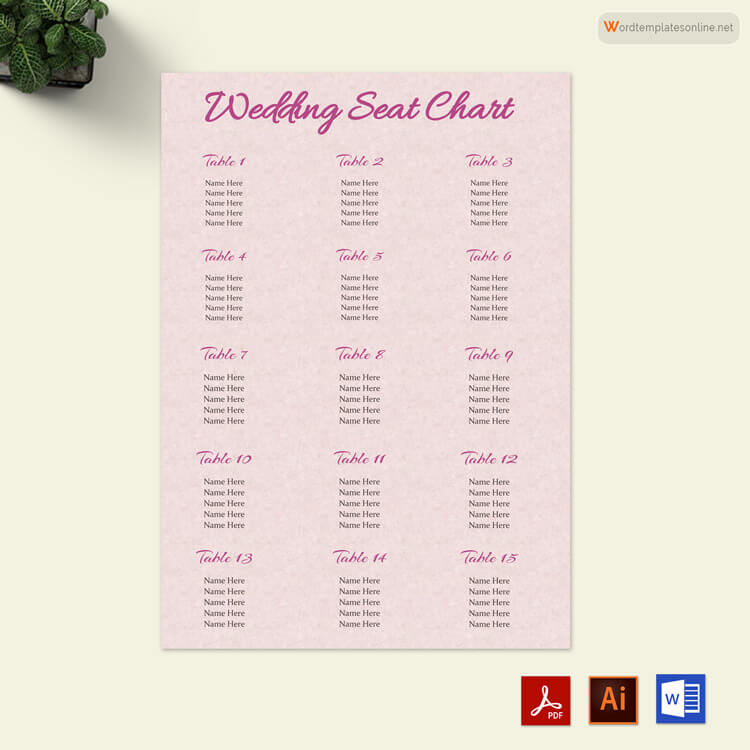
Why Should You Create It
Wedding guests include friends and acquaintances from different phases of the couple’s lives. In addition, it includes nuclear and extended family members and various acquaintances of both the bride and the groom. A plan will allow the planner to seat the right people next to others who share a common interest or have a prior relationship.
In addition to this, this plan offers the following benefits:
Seating familiar people together
Any guest list contains a diverse range of family, friends, colleagues, acquaintances, and other social circles. Naturally, not all guests will be familiar with one another. A chart will place all guests with people they are familiar with.
Tackling sensitive relationships
It is unlikely that everyone on the guest list will be comfortable with each other. A planner will help handle sensitive relationships by helping the conflicted individuals avoid each other as best they can during the ceremony and reception.
Proper arrangement
It is required to ensure that food, decorations, and venue fixtures are properly arranged. By using the floor plan, the planner can make the best arrangements for the ceremony. In addition, it will ensure optimal utilization of the available space in the venue.
Utilization of maximum capacity
A good plan also allows the planner to utilize the venue’s maximum capacity. In addition, they can use the floor plan to ensure that they fit all attending guests while ensuring enough space is available for other wedding activities.
Organized banquet
For the banquet, the event planner and couple have to decide how to serve food to the guests. The planner can use the plan to decide how the guests should be served. Servers can take orders at their tables, or the guests can serve themselves buffet-style. A well thought seating ensures that the banquet is organized, ensuring each guest is served with optimal ease.
How to Effectively Plan It
Creating the perfect seating plan requires skill and precision. However, the steps below will provide a great blueprint to follow:
Obtain the floor plan
The floor plan of the venue is essential to the arrangement. Therefore, the couple needs to contact the venue to acquire the floor plan of the venue. It usually includes important information like the venue’s dimensions and the location of utilities like bathrooms, electrical outlets, and other amenities.
Calculate number of tables needed
The number of tables needed will depend on the total number of confirmed guests. This information can then be analyzed against the available space in the wedding venue.
Choose the bridal couple’s seat
The bridal couple is the priority when the plans are concerned. The couple may choose a “sweetheart table” or sit with close friends and family during the reception. The “sweetheart table” option can provide a solution for couples who wish to avoid family drama during their wedding reception.
However, sitting with close family and friends can offer a more intimate and meaningful experience, allowing the couple to interact with the people who are closest to their hearts. Being surrounded by loved ones enables the couple to share special moments, create cherished memories, and further strengthen their relationships on this special day. Regardless of where the couple chooses to sit, they should be near the center of the venue so that all guests can see them.
Decide on the table shapes
The shape and size of the tables determine the number of people that can be comfortably seated together. The planner can use the guest list and grouping information to determine the most efficient table shape and size to use for the event.
Make an RSVP list
It is important to create a list of attendees who have positively responded to the wedding invitation and make note of the total number of expected guests. This helps in keeping track of the confirmed attendees and provides an accurate headcount for planning various aspects of the wedding, such as seating, catering, and other logistics.
Keeping an organized record of RSVPs ensures that the couple and their planner can make the necessary arrangements to accommodate all guests and ensure a smooth and enjoyable experience for everyone on the big day.
Decide on the parents’ seating
The parents of the couple also have a high priority when it comes to the arrangement. If the couple chooses to sit with close friends and family, the couple’s parents would want to be seated close to the couple. If both couples’ parents get along, they may be seated at the same table. However, if the relationship between them is not friendly, they may be seated with other close family members on either side of the couple’s table.
Enlist VIP guests
Naturally, all guests are important at the wedding. However, some guests are close to the couple. These VIP guests should be given preferential treatment. VIP guests typically have the second-best seats after the couple’s parents or guardians.
Organize guests into groups
Once the total list of wedding guests has been compiled, it needs to group the wedding guests based on their relationship with the couple. The first two groups are the parents of the couple and the VIP guests. The rest of the guests can be grouped based on their periodic relationship with the couple.
EXAMPLE
College friends should be grouped. Work colleagues, high school friends, club members, and other social circles should all be seated together.
Separate kids table
Children should have their own table. The kids’ table should be separated from the other tables and provided with child-appropriate entertainment. Also, the kids’ table should not be close to the bar.
Keep the venue in mind
All seating arrangements in the wedding plan should be made considering the specifics of the venue. For better planning, the chart should be drawn with a scaled diagram of the wedding venue. This will allow for a better visual map of the venue.
Additional Tips to Follow
Although it could be considered an interesting job to be planning a wedding, it can still be a challenge for many, especially if certain guidelines are not considered in order to avoid having scattered or jumbled-up ideas or outcomes in the plan.
Following are some tips for making a great chart and plan:
Enlist the parents’ help
The couple’s parents have a great deal of knowledge about the couple and the relationships between extended family members on the guest list. Therefore, the couple’s parents would provide specific information that would help with the arrangements.
Make a note of individual dietary restrictions
No event is complete without consideration for the dietary restrictions of the guests. While some guests are vegans or vegetarians, others have food allergies. Therefore, dietary restrictions and food allergies should be noted when planning the menu.
The couple needs to share the logistics with critical decision-makers within their families. This will promote harmony throughout the event while relieving the stress of having to plan everything on your own. In addition, any oversight by the couple can be immediately addressed.
Choose safety over style
The safety of the guests is a top priority when making the chart for a wedding. When making decisions about the arrangement, the planner must consider several safety issues, such as unforeseen weather conditions, floor issues, and emergencies. Therefore, the venue should be planned with these scenarios in mind.
Not everyone will be happy
Most likely, the wedding guests will approve of the wedding plan. However, in most cases, a few individuals would have one or more complaints. This is perfectly normal.
Seat young guests by the dancefloor
Younger guests are typically more likely to use the dance floor and should be seated closest to it. Also, the couple’s parents are likely to share a dance with their son or daughter on their special day. Hence, the couple and parents should also be seated close to the dance floor.
This arrangement needs to allow some extra space for guests who use wheelchairs.
EXAMPLE
The wedding planner may make a special list of guests who use wheelchairs and remove a chair (or chairs) from the table(s) assigned to these guests.
With modern resources, wedding planners can access free digital charts. These digital tools can help streamline the process of seating guests, allow guests to be moved from table to table with ease, and design the venue space based on the specifications of the wedding venue.
The following digital tools can be used to create detailed plans at no cost:
- Weddingwire
- Allseated
- Table planner: The seating chart app
- Zola
- Style me pretty
Consider Assigning Tables Only as Alternative
While a master plan has its perks, an alternative course of action is assigning tables only. If the event planner chooses to assign tables without specific seats, the guests would still have direction. However, they would be able to make their own choices. Another advantage of assigning tables only is that guests would not scramble for seats as the couple was about to make their grand entrance.
As with an assigned seating plan, the planner still needs to carefully consider how guests will be grouped, making sure everyone has someone to talk to and has a good time. Also, ensure that elderly guests have a designated place to sit together.
note
When it comes to sit-down meal arrangements, using placards or place cards to guide the venue and caterers in serving specific meals is a common practice. Simply assigning tables may not be sufficient in such cases, as it is important to provide clear guidance for meal service. Assigning tables only would not work with a sit-down meal arrangement, as venues and caterers often require placards to guide them while serving specific meals.
Frequently Asked Questions
The seating for the bride and groom’s parents largely depend on their relationship dynamics. Ideally, if they share a harmonious relationship, they would likely prefer to be seated together to share in the joy of the moment. However, if their relationship is strained, it may be best to seat them at separate tables along with other close relatives.
There are two requirements for assigned seating at a reception:
i. If the guests are more than 75 people.
ii. If the reception features seated dining.
It is worth mentioning that the primary purpose is to enhance guest organization, ensuring they can fully enjoy the celebration in a relaxed and festive atmosphere.
In a religious wedding ceremony, the couple’s beliefs determine their seating positions. As these positions vary from culture to culture and religion to religion, it is best to consult the couple, parents, or religious leader on such matters.




